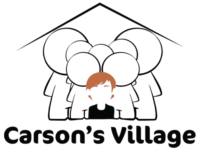The following article is not meant as a substitute for the advice of a professional attorney. It is a broadly written guide. For specific questions pertaining to financial matters, please consult an attorney.
When a family member or person close to us passes away, a load of responsibility is suddenly heaped onto our shoulders. Often those responsibilities involve taking care of the debt that the deceased has left behind. Debt is any amount of money borrowed from a creditor which the debtor agrees to pay back. Before delving into financial matters related to your loved one, it is essential to understand the different types of debt that exist. Here, we break down the common types for you so you can have an easier handle on the situation.
Credit Card Debt
Credit card debt is a type of revolving debt where money is owed on an ongoing basis with an open line of credit. You can borrow money using your credit limit, which is a specific amount of money granted by the credit card company. Not paying the full balance (for example, only paying the minimum payment) when your bill arrives each cycle, means you can rack up interest rates. Not paying the balance at all each cycle means you can rack up late fees, pushing a person further into debt.
Mortgage Debt
Mortgage debt is money owed on a mortgage, which is a loan acquired to buy a home or other real estate. It is a form of secured debt, meaning the person borrowing money offers some form of collateral to the lender in case they can’t make payments. Once a person falls behind on their mortgage, they have several options to get back on track. These options include putting a temporary hold on the mortgage, repayment in installments, and more.
Car Debt
Car debt is a form of installment debt where money is owed on a car. It is also a form of secured debt because the car is used as collateral and can be repossessed if payments are not made. Payments on the car are usually made monthly and at a fixed amount. People often enter this kind of debt when they take on a car loan that they can’t afford. In order to get out of debt, individuals can usually contact their lender to negotiate a new schedule for payment or other options if they fall behind.
Medical Debt
Medical debt is a common form of unsecured debt that happens when a person is unable to pay their medical bills. There are a variety of reasons as to why this might happen. Often it can be due to reasons beyond a person’s control. In an attempt to recover the money owed, healthcare providers directly contact patients themselves or they can hire a collector to contact them. To avoid this debt, many people arrange installment plans with their healthcare providers.
We know that right now is a delicate period and that you may have more questions regarding the passing of your loved one. For more general information on a number of topics related to your situation, please visit our resource library.
